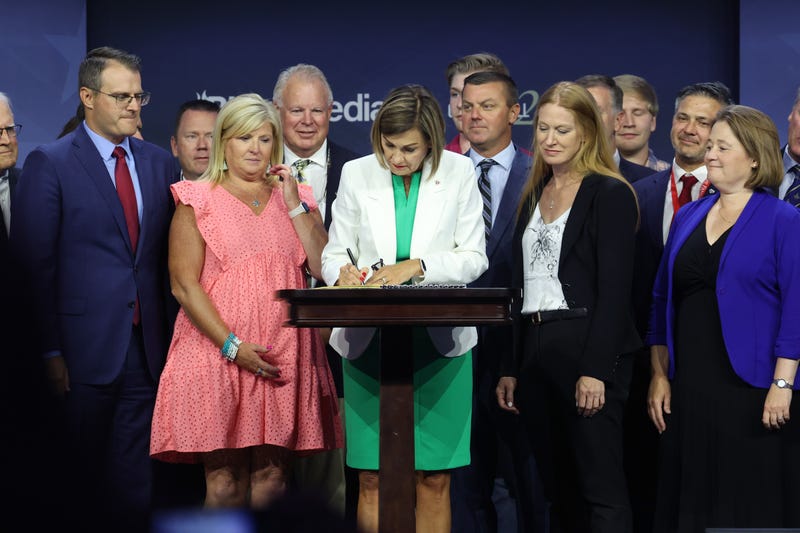
Planned Parenthood is gearing up for some major service changes as Iowans lose access to most abortions in that state.
The Iowa Supreme Court decided last week to place a ban on almost all abortions after six weeks.
Chief Medical Officer for Planned Parenthood North Central States, Sarah Traxler, says the organization planned for this moment and will adjust accordingly.
"We understand the real people who will be impacted by this reckless ban and we are doing everything we can to mitigate the harm caused by this dangerous policy," Traxler says. "This ban ties doctors hands, it puts them in the impossible position of deciding whether to keep their license or provide life saving healthcare and uphold their own."
Since Roe v wade was repealed, 22 states have enacted restrictions affecting more than one in three American women.
Iowa joins three other states that now ban abortions after about six weeks, a period of time before many women even know they are pregnant.
Kristina Remus, a patient services associate with Planned Parenthood says Iowa patients are still in shock over the decision.
"We are having extremely difficult conversations in my department with patients," explains Remus. "One patient I recently worked with initially had scheduled an abortion appointment in Iowa, but was forced to reschedule in Minnesota. She told me that she is feeling so extremely disheartened by this situation."
Providers fear the ban will worsen the health inequalities for Iowa’s women of color and low income patients.
On Thursday, Minnesota’s Democratic Lt. Gov. Peggy Flanagan toured the Whole Woman’s Health of Minnesota, a nonprofit abortion clinic in the city of Bloomington. She welcomed Iowa residents who were seeking abortions after the state’s new restrictions take effect.
Previously, abortion was legal up to 20 weeks of pregnancy in Iowa. Last July, the state’s Republican-controlled legislature passed a new ban on the procedure after six weeks of pregnancy, which is often before women know they are pregnant. There are limited exceptions in cases of rape, incest, fetal abnormality or when the life of the mother is in danger.
The Iowa Supreme Court reiterated in June that there is no constitutional right to an abortion in the state and ordered a hold on the law to be lifted. The district court judge’s orders last week set July 29 as the first day of enforcement.
Across the country, the state of abortion access has being changing ever since the Supreme Court’s decision in Dobbs v. Jackson Women’s Health Organization. Trigger laws immediately went into effect, new restrictions were passed, court battles put those on hold and in some places, there was expanded access.
In states with restrictions, the main abortion options are getting pills by mail or underground networks and traveling, vastly driving up demand in states with more access.
Whole Woman’s Health of Minnesota has served patients from South Dakota, Nebraska, Wisconsin, Indiana, Texas, Oklahoma, Tennessee, Florida and Arkansas over the past year. Amy Hagstrom Miller, founder and CEO of the clinic, said she expects to see an increase in patient demand after Iowa’s restrictions take effect.
Flanagan said Minnesota would remain committed to serving people traveling from other states seeking abortion care.
“If you’re afraid, come to Minnesota,” Flanagan said. “We’ve got you.”
The Associated Press contributed to this story.
